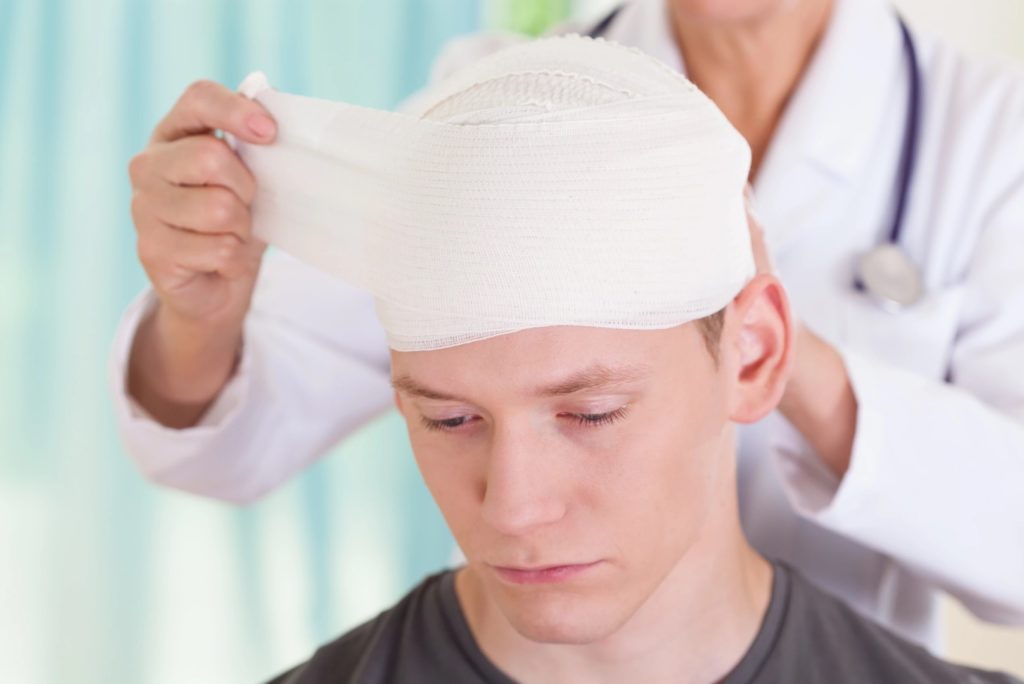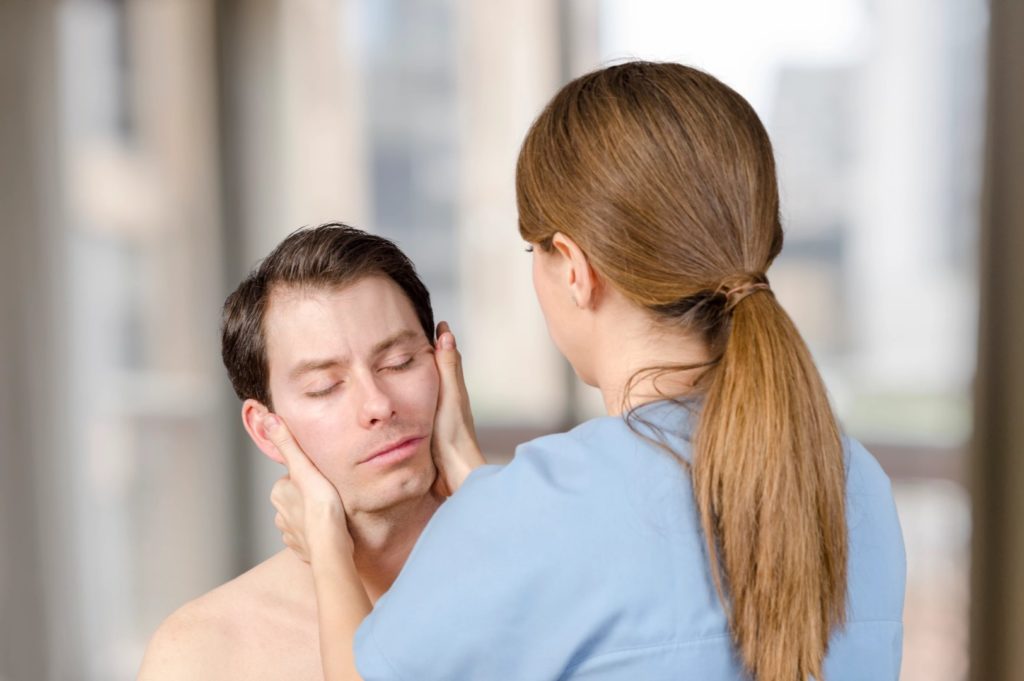Have you ever felt dizzy, confused, nauseous, or lost consciousness after an impact or sudden jarring to your head and neck? A concussion may have been the culprit. If left untreated, concussions and whiplash can lead to a wide range of lasting effects on your brain health.
These are dangerous, even fatal, head injuries that need to be addressed as soon as possible by a medical professional. By determining the severity of the head and neck injury, our highly trained medical professionals at SMART Rehab will determine the proper course of treatment and work with you one-on-one to help you recover fully.
Knowing how to identify the signs and symptoms of a concussion and getting your friends, strangers, or even yourself to a medical professional will prevent serious health complications that are associated with an untreated concussion.

What is a concussion?
After a sudden shock to the head and/or neck, the brain can bounce or twist in your skull causing a mild traumatic brain injury, otherwise known as a concussion. This can occur from an awkward fall or getting hit in the head by an object, to whiplash from a car accident or workplace injury. However, it is not uncommon for a concussion to go undiagnosed, as there is still an old misconception that you need to hit your head in order for a concussion to occur.
With a concussion, whiplash is inevitable. The amount of force acting on your head and neck that causes a concussion will be much greater than the force required for whiplash. If you have a concussion, both your head and neck are injured to a certain degree. Be sure to have your healthcare provider examine both areas to determine the severity of the overall injury.
Symptoms and signs
But how can you tell if you have a concussion?
If you experience whiplash, an impact to the head, or something else that causes your brain to hit your skull, you may have a concussion. Because your head and neck are so closely intertwined, whiplash and concussions have many of the same symptoms, so watch out for these signs:
- Headache or a feeling of pressure in the head
- Dizziness
- Confusion
- Drowsiness
- Temporary loss of consciousness
- Amnesia about what happened
- Ringing in ears
- Nausea and vomiting
- Balance problems
- Blurred or doubled vision
If you witness someone suffer a head or neck injury, be sure to ask if they are experiencing any of these symptoms and notify a medical professional to determine the severity of the injury. Even if you don’t feel any pain in your neck, have a healthcare professional check for signs of an injury.

Along with the above symptoms, also watch out for these other signs:
- Irritability
- Seizures
- Draining of blood or clear fluid from the ears or nose
- Unequal pupil size and odd eye movement
- Slurred speech
- Unconsciousness
Concussion treatment options
If a concussion goes untreated, there can be lasting effects that drastically change your life. Luckily, there are a few different ways to treat concussions and neck injuries.
New evidence has suggested that exercise therapy could be a significant step in fully recovering after a concussion. Many symptoms from a concussion can be caused by abnormal blood flow to the brain so controlled exercise each day during your recovery will improve your cerebral blood flow regulation. This will lead to your brain functioning properly again.
After experiencing an injury, it’s important to do everything you can to recover fully. There are many factors to consider that working with an Occupational Therapist can help identify. A few of the things to consider is the visual and auditory input you are getting or even being careful with what you eat or drink as this causes more stress on the brain. With concussions, minimizing the overload on the brain, which includes reducing inflammation in your brain and neck, is important as they can cause post-concussion headaches. These and other symptoms can persist for a long time if not properly considered and modifications made.
Because concussion symptoms can arise from your head and neck, recovery can take a lot longer if you only consider one of these two areas during your recovery. While minor concussions can take just over a week to recover from, you may continue experiencing the same symptoms for much longer if your neck doesn’t recover properly.

Rehabilitative exercises are a perfect solution to fix both your head and neck.
Our staff are highly trained in injury rehabilitation services and we work with you through every step of the way on your path to recovery. From educating you on your injury, providing preventative tips, and active rehabilitation services, to evaluations and future care assessments, we cover it all so you can get back to living your life.
Dangers and risks of an untreated concussion
No matter what degree of concussion or whiplash you experience, it’s a bad idea to leave it untreated. Some long-term side effects from an untreated concussion include trouble concentrating, memory problems, irritability and other personality changes, sensitivity to light and noise, sleep disturbances, smell and taste disorders, and, to top things off, depression and other psychological problems.
These side effects can last for a short period of time or fully impact you for the rest of your life. It’s imperative to seek medical assistance if you think you are experiencing a concussion or left one go untreated to avoid these brain health complications.
How we can help
Our healthcare professionals are trained to identify mild to severe head and neck injuries while offering plenty of advice to help you recover quickly so you can get back to living your life. We will cover all available treatment options with you and help you build a rehabilitation program for your recovery.
At SMART Rehab, you can be confident that we will work closely with you and recommend the best treatment option for your injury. For more information or inquiries about concussions, contact us today, we would be happy to help.